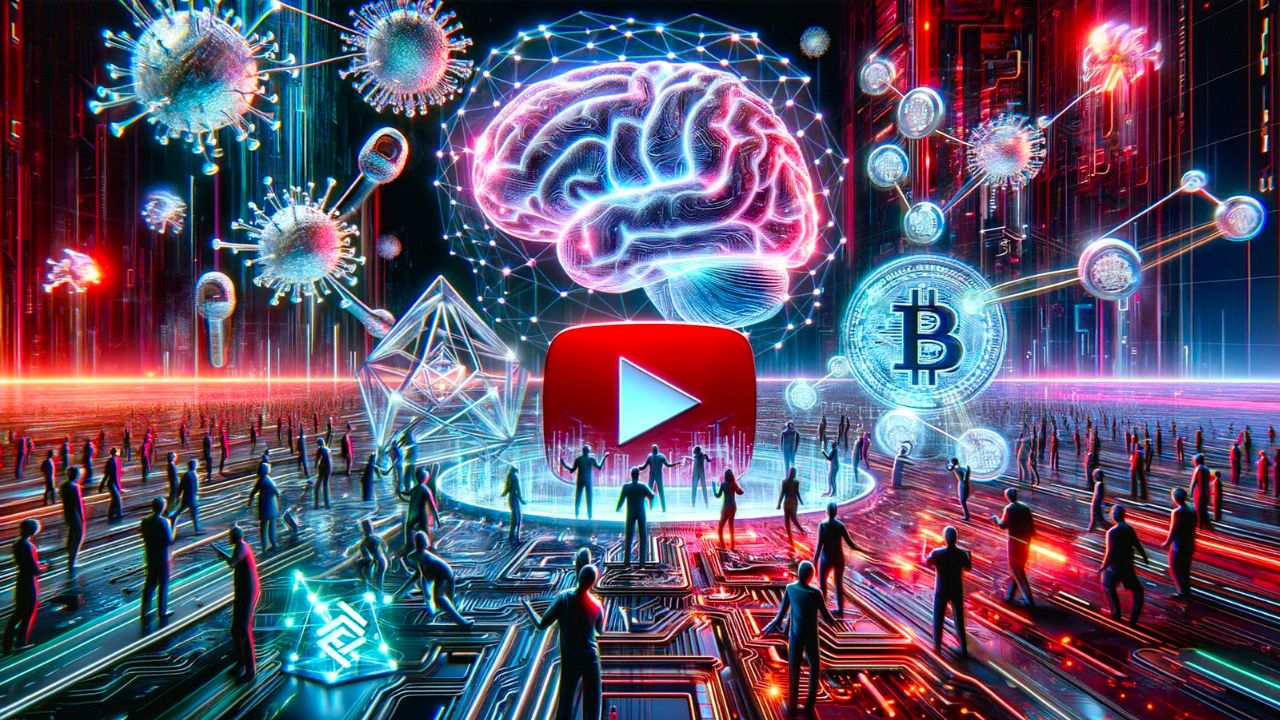
YouTube’s 2024 AI Policy
Enforcing Transparency and Responsibility Among Creators
YouTube’s announcement of new AI rules for all creators marks a significant shift in the digital content landscape. By 2024, creators will be required to disclose the use of AI, especially in the case of synthetic or altered content. This policy aims to maintain a balance between the innovative potential of AI and the integrity of the platform, ensuring viewer protection and content authenticity.
The Symbiosis of AI and Blockchain in Content Creation
Emerging Opportunities and Challenges
The intersection of AI and blockchain technology is reshaping the content creation industry. AI’s ability to generate content rapidly has raised concerns regarding authenticity and transparency. In this context, blockchain’s role in ensuring cryptographic truth and identity verification becomes increasingly relevant. Blockchain technology can provide a verifiable foundation, ensuring that AI-generated content is credible and its origins are transparent.
Decentralization and Democratization of AI
The advent of AI technologies like chat GPT and various frontier models has democratized content creation, making it accessible to a broader range of creators. However, this democratization also brings the risk of misinformation and misuse. Here, blockchain’s decentralized nature offers a solution, ensuring that AI applications are secure and their outputs are reliable.
Blockchain’s Role in Securing AI Applications
Blockchain’s robust security architecture, including mechanisms like zero-knowledge proofs, enhances the reliability of AI applications. This integration ensures that AI-generated content, while innovative, remains within the bounds of ethical and responsible use. The synergy between AI and blockchain thus provides a framework for creators to harness the potential of AI while adhering to YouTube’s new policies.
Bitcoin’s Relevance in the AI-Blockchain Ecosystem
Facilitating Transactions and Trust
Bitcoin, as a pioneering cryptocurrency, plays a significant role in this ecosystem. Its decentralized nature and blockchain backbone make it an ideal candidate for transactions and trust-building in AI-related applications. Bitcoin can serve as a means of exchange or as a tool for incentivizing responsible AI content creation, aligning with YouTube’s vision of ethical AI use.
Navigating the Future of Content Creation
Adapting to a Rapidly Evolving Digital Landscape
As we navigate the convergence of AI and blockchain, the implications of YouTube’s 2024 AI policy become a driving force in shaping the future of content creation. This policy not only encourages transparency among creators but also fosters an environment where technological innovations like AI and blockchain can coexist and complement each other. The integration of these technologies holds the promise of significant advancements, yet it also brings forth challenges that necessitate responsible management and continuous innovation. The digital content landscape is evolving rapidly, and adapting to these changes is crucial for creators, platforms, and viewers alike.
Thank you for reading “YouTube’s New AI Rules: A Catalyst for Blockchain and AI Integration in Content Creation“.
- Subscribe to our newsletter: ConsensusProtocol.org
- Follow us on Twitter: @ConsensusPro
Sources:
YouTube Official Blog: Bringing More Transparency and Accountability to AI-generated Content https://blog.youtube/inside-youtube/our-approach-to-responsible-ai-innovation/
The Wall Street Journal: YouTube to Restrict AI-Generated Videos and Music https://www.wsj.com/articles/youtube-to-restrict-ai-generated-videos-and-music-11673465359
The Verge: YouTube will require disclosure for AI-generated videos https://www.theverge.com/2023/2/3/23574765/youtube-require-disclosure-ai-generated-videos-deepfakes
CoinDesk: How Crypto and Web3 Can Fix AI’s Looming Crisis of Trust https://www.coindesk.com/policy/2023/01/05/how-crypto-and-web3-can-fix-ais-looming-crisis-of-trust/
Harvard Business Review: Blockchain Will Do to the Financial System What the Internet Did to Media https://hbr.org/2017/03/how-safe-are-blockchains-it-depends




